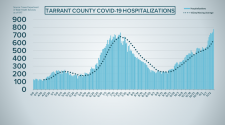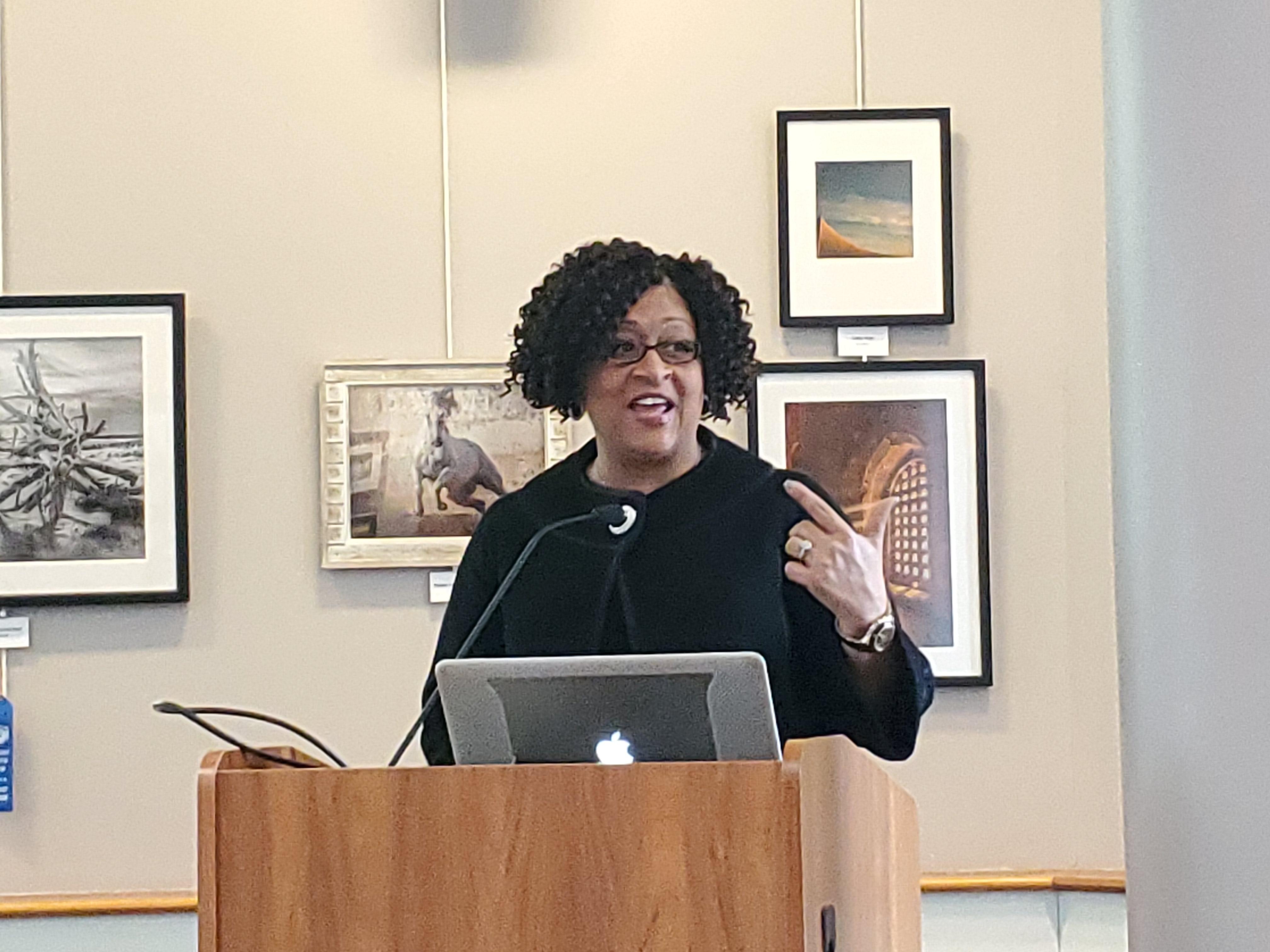PORTSMOUTH — The ways racism can play a part in the health care of black people was the topic of an Elinor Williams Hooker Tea Talk on Sunday.
The talk, part of an ongoing series, was titled Medicine, Health, and Race, and was held in the Levenson Room at Portsmouth Public Library. This week’s presenters were Dr. Shari Robinson, Director of Psychological and Counseling Services at the University of New Hampshire, Dr. Daphne Robert, a podiatry specialist in New Hampshire and Massachusetts, and Kerri Osborne, Chief Development Officer for the national CARES Mentoring Movement.
The panel discussion explored how myths about racial inferiority and physical racial differences operate in the fields of medical practice, social work and mental health.
JerriAnne Boggis, Executive Director of the Black Heritage Trail, which sponsors the tea talks, shocked people when she read that a 2016 survey of 222 doctors, showed they all had endorsed at least one myth about the physiological differences between black people and white people. Among the beliefs were that black people’s skin is thicker, and that they felt less pain.
“We dedicate today’s tea talk to Rebecca Lee Crumpler, the first female black doctor (1864),” said Boggis. “She was born free and trained in Boston. She published treatises on the burden of disease in the black community.
The focus soon turned quickly to mental health care.
“African Americans can experience more severe forms of mental health disorders due to their unmet needs and other barriers,” said Robinson., “They may be excluded from services. Because of stigma, they may turn to relying on their faith and spirituality to address their needs.”
Robert, whose heritage is Haitian, said she wanted to be a doctor since she was 6 years old. After her first college counselor told her she wasn’t good enough, she gave up. She married, had two children and became a medical assistant. It wasn’t until she worked with a doctor in Massachusetts that she returned to medicine, with the support of that doctor.
“She worked in Haiti, doing clinical work,” said Robert. “I said I wanted to do that, maybe as a nurse. She said why stop there? Go all the way.”
Robert spoke about “implicit bias,” beliefs we all have but do not think of as racism. As a podiatrist now, she said she sees it every day.
“People come and ask when they will see the podiatrist,” said Robert. “I tell them I am the podiatrist.”
Osborne talked about the alarming rise in the rate of suicide among black youth, 5-11 years old.
“The rate has doubled and is outpacing white children,” said Osborne. “Hanging is the number one way, and in children as young as 5 years old. Kids do not have the support they need. They are told from the time they are small, that they are less, that black is bad. Mass incarceration has deteriorated their culture. Who do they go to to talk about their feelings? We need to find a way for them to choose to live instead.”
There were no ready solutions, but there was a lot of interest. The audience was predominantly white but showed a great interest in the topic and wondered aloud how they might be a part of the solution.














